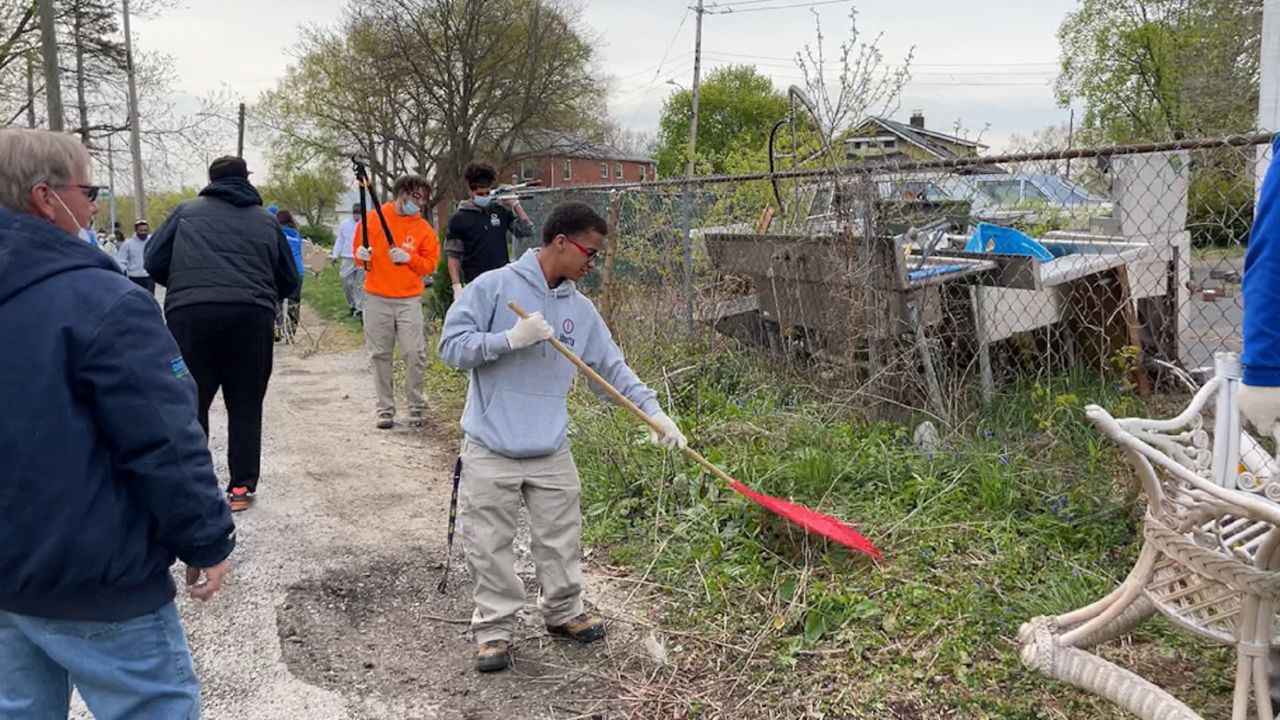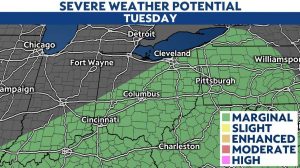The Supreme Court on Monday agreed to take up a case regarding a New York law over the right to carry guns in public for self-defense, a major Second Amendment dispute which could have a significant impact on gun rights in the United States.
The case is the first significant gun rights dispute to reach the bench in more than a decade, and the first since Justice Amy Coney Barrett joined the nation’s highest court, solidifying a 6-3 conservative majority.
It also comes in the wake of a spate of deadly mass shootings in the United States, and the Biden Administration taking executive action on gun regulations and pushing Congress to take action on firearm reform.
The case, New York State Rifle & Pistol Association v. Keith Corlett, features individuals and an organization challenging a New York law which governs who has the right to carry concealed firearms in public. To obtain such a license in New York, a resident must show “proper cause” and a “special need for self-protection.”
Paul Clement, formerly solicitor general under the Bush administration, argues that the law makes it difficult for a normal individual to obtain such a permit.
“Good, even impeccable, moral character plus a simple desire to exercise a fundamental right is, according to these courts, not sufficient,” Clement argues on behalf of the plaintiffs. “Nor is living or being employed in a ‘high crime area.’”
New York Gov. Andrew Cuomo, a Democrat, called the case, which he blasted as “NRA-backed,” a “massive threat to that security.”
“Imagine someone carrying a gun through Times Square, onto the subway, or to a tailgate outside of a Bills game – the NRA’s goal here is to shift the onus onto regular New Yorkers, police officers, security guards, and first responders to determine whether an armed individual poses a threat or is simply carrying for self-defense,” Cuomo said in a statement. “The streets of New York are not the O.K. Corral, and the NRA’s dream of a society where everyone is terrified of each other and armed to the teeth is abhorrent to our values.”
“It’s worth remembering that New York’s nation-leading gun violence prevention laws, including the SAFE Act we passed after the tragedy at Sandy Hook Elementary, haven’t stopped anyone with a legal right to buy, possess, or use a gun from doing so – but they have made us the safest big state in the country,” the governor said.
Cuomo called on Congress and the White House to take action on guns: “Changing the law to require a background check on all gun sales, ban assault weapons and high-capacity magazines, implement Red Flag orders, and close the Charleston loophole is overwhelmingly popular, constitutional, and effective. We’ve proven as much in New York State, and with President Biden in the White House, Congress now has an opportunity to do the same. I urge them to take it.”
Clement says that the high court should settle the matter once and for all. Justices Clarence Thomas and Brett Kavanaugh have urged their fellow justices to take up the issue, which the high court has declined.
The issue of carrying a gun for self-defense has been seen for several years as the next major step for gun rights at the Supreme Court, following decisions in 2008 and 2010 that established a nationwide right to keep a gun at home for self-defense.
The landmark 2008 decision in District of Columbia v. Heller protected the right to own guns for a number of reasons, including self-defense within the home.
“Handguns are the most popular weapon chosen by Americans for self-defense in the home, and a complete prohibition of their use is invalid,” the late Justice Antonin Scalia wrote for the majority in that decision.
However, the decision specified that the right to bear arms isn’t unlimited and ownership should continue to be regulated.
Thomas has called the Second Amendment a “disfavored right” and a “constitutional orphan,” and Kavanaugh wrote last year that the court should take up an issue on the scope of the Second Amendment “soon.”
New York has some of the strictest gun laws in the country, one of eight states to have limits on carrying a weapon in public. Other states which employ such limitations are California, Hawaii, Massachusetts and New Jersey. In much of the rest of the country, gun owners face little resistance in carrying weapons legally in public.
Calling on the court to reject the appeal, the state said its law promotes public safety and crime reduction and neither bans people from carrying guns nor allows everyone to do so.
New York Attorney General Letitia James argues that there is precedent for limiting carrying firearms in public, telling the court that applicants for a permit need to show an “actual and articulable — rather than merely speculative or specious — need for self-defense,” which lower courts upheld.
Federal courts have largely upheld the permit limits. Last month an 11-judge panel of the federal appeals court in San Francisco rejected a challenge to Hawaii’s permit regulations in an opinion written by a conservative judge, Jay Bybee.
“Our review of more than 700 years of English and American legal history reveals a strong theme: government has the power to regulate arms in the public square,” Bybee wrote in a 7-4 decision for the 9th U.S. Circuit Court of Appeals.
Oral arguments will take place in the fall, with a decision expected by the summer of 2022.
The Associated Press contributed to this report.




